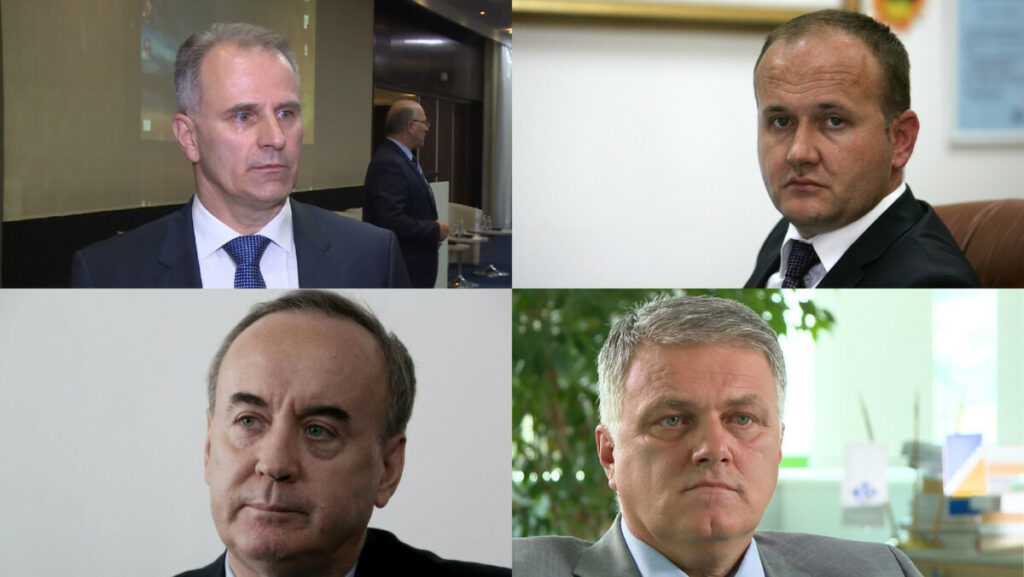The unclear development strategy of Elektroprivreda BiH, a series of corruption scandals and the absence of political courage in the context of the Block 7 construction, a generational project crucial for the stability of the electricity supply to the citizens of FBiH, are all the factors that called into question the market position of this state-owned enterprise, which today, according to estimates, has a loss of over 80 million convertible marks.
The epilogue came after almost 18 years – the construction is being abandoned. The project of Block 7 construction was once considered a generational and perspective project that was to replace decrepit facilities owned by Elektroprivreda BiH. However, this project has remained on hold due to a series of events and decisions of the government representatives over the past 18 years, and the consequences of the failure to implement this project have already impacted the operations of one of the most significant state-owned enterprise.
The Prime Minister of the Federation of BiH, Nermin Nikšić, confirmed abandonment of Block 7 in his statement for the Federation television at the end of 2023, when he announced that Block 7 will definitely not be built, adding that a decision has to be made about whether to go to arbitration or to reach an agreement with those with whom the contract was signed.
A block to you, and a block to me
As a reminder, the need to replace decrepit blocks 3, 4 and 5 of the Tuzla Thermal Power Plant, owned by Elektroprivreda BiH, arose in the 2000s already. Block 7, which was announced as the largest energy project in the history of Bosnia and Herzegovina, was supposed to replace those decrepit blocks.
At the beginning of 2006 the FBiH Government had, without a procurement notice, entrusted the construction of eight massive energy facilities, including Block 7, to the Austrian consortium “Austrian Power and Environment Technology” – APET. Shortly after the agreement with the Austrian APET, the FBiH Government decided to publish a procurement notice and the German company “EnBW” appeared as a new strategic partner for the construction of Block 7. However, the German company withdrew from this project for unknown reasons. During a new prequalification procedure the FBiH Government had then, together with Elektroprivreda BiH, signed a contract with the Swiss company “Alpiq” that was just a year ago involved in the scandal concerning buying of surplus electricity, which damaged Elektroprivreda BiH for 18 million Euro.
The government in Federation of BiH changed in 2010, and so did the director of Elektroprivreda BiH. Elvedin Grabovica, a member of SDP, came to the position of the director general of Elektroprivreda BiH instead of Amer Jerlagić.
The change at the senior managerial position in Elektroprivreda BiH results in the annulment of the prequalification procedure and the Swiss company “Alpiq” was eliminated from the strategic partnership. Elektroprivreda BiH published a new procurement notice in 2012 at which two bids were accepted – the Japanese company “Hitachi Power System” and the Chinese national consortium “China Gezhouba Group”. The Japanese company withdrew due to the social and political events in BiH at that time, whereafter a contract was signed with the Chinese consortium. The contract on project financing with the “Gezhouba Group” was signed by Bajazit Jašarević, successor of Elvedin Grabovica at the position of the director of Elektroprivreda BiH.
The US company “General Electric” was selected as a subcontractor. The Chinese contractors offered replacement equipment after “General Electric” cancelled the cooperation. However, following withdrawal of the American supplier of key equipment, the expert team that was hired by Elektroprivreda BiH assessed the alternate subcontractor as unsatisfactory in relation to the requirements of the tender document. So far three contract termination notices have been set to the Chinese consortium. Around 300 million convertible marks has been already spent on this project, whereof 200 million convertible marks as an advance payment.
Block 7 construction site, foto: Archive
And who will be held accountable?
Appointments of the directors of Elektroprivreda BiH, one of the largest state enterprises, were mostly of a political nature. In the period of 18 years, which is also duration of the Block 7 construction project, there have been different directors of Elektroprivreda BiH – from Amer Jerlagić, Elvedin Grabovica, Bajazit Jašarević, Admir Andelija to Acting Director Sanel Buljubašić.
Amer Jerlagić served as the general director of the EPBiH from 2008 to 2011. Jerlagić’s mandate was marked by an investigation of the Prosecutor’s Office of Sarajevo Canton due to the alleged abuse of position and authority revealed by the FBiH financial police. The subject of this investigation was the sale of surplus electricity, which caused the EPBiH to be damaged for eight million convertible marks.
SDP’s proposal, Elvedin Grabovica, replaced Jerlagić after his departure. But even Grabovica’s mandate as the head of this company did not go unnoticed. The media have earlier brought to the light business dealings between the company “BS Telecom Solution” and Elektroprivreda BiH. This private company is brought into connection with the then director of EPBiH. Tačno.net portal previously reported on the connections of this company with Grabovica.
Grabovica was replaced in this position by Bajazit Jašarević from SDA, who signed an official contract with the Chinese contractor for Block 7. Furthermore, the EPBiH took out a loan of 145 million convertible marks during Jašarević’s mandate for the financing of Block 7 from commercial banks, led by the then Russian Sberbank. The Russian bank obtained a lien on Block 6 and the administrative building of EPBiH.
The process of revitalization of Block 6 of the Tuzla Thermal Power Plant marked the mandate of Admir Andelija, who came to the position of director general on behalf of the then coalition SDA-DF.
Namely, EPBiH led by Andelija announced a tender for revitalization of Block 6 at which a Bosnian-Chinese consortium was selected. The total value of the project was around 29.7 million convertible marks. As EPBiH stated earlier the implementation of the boiler’s revitalization project for Block 6 has also been planned for the year 2023, lasting five months, in the period from March 1 to July 31, 2023. According to the information of Tačno.net portal Block 6 started working, in a test stage, only in December of 2023.
Thus the most potent energy facility of EPBiH, Block 6, operated only at negligible capacity last year due to the delays in the revitalization process of this facility that was entrusted to the Chinese-Bosnian consortium.
Portal Tačno.net has earlier reported on consequences of the delay of this project that was awarded to the construction company ITC Zenica, and the Chinese national companies “Donfang Electric” and “Dongfang Boiler” with strong political connections with the highest levels of government in RS.
Heart, hands and a shovel
Energy analysts have been stressing for many years that Block 7 is a failed project, and that the politicians were not sufficiently courageous to admit that. Almir Muhamedbegović, energy analysts, talked for Tačno.net about consequences of the failure of Block 7 project, stressing that we are missing expert analyses.
“When we are talking about the future, we primarily have to look at where we are and why are we exactly there. FBiH has never got an energy strategy that was set forth by the Law on Electricity. When you are missing such a document that predicts the trends of the sector in the next 20 to 30 years (which should have been adopted by the FBiH Government) you don’t know what should be done as you don’t have a goal to reach”, said Muhamedbegović.
The question of the future of Elektroprivreda BiH itself as a state-owned enterprise also lingers in the context of abandonment of the Block 7 project. Expected loss of Elektroprivreda BiH for 2023 is 80 million convertible marks, and EPBiH is also facing insufficient coal production in the mines of the Group.
Damir Miljević, energy analytic, said for Tačno.net that EPBiH is in a very difficult situation with or without Block 7, primarily because no one took care about the development and everything that was happening and because of the fact that coal mines that are part of the EPBiH are in the same, if not worse situation, than they were before becoming part of EPBiH.
“Without going into the reasons why this is so, as they are in the sphere of politics and non-transparent and negligent business operations that are usual for public enterprises in BiH, the fact is that the EPBiH is now primarily faced with a political decision in which direction to go. When I say a political decision, I mean a strategic decision that should be made primarily in connection with the future of mines that are not able to provide coal for the functioning of thermal power plants in EPBiH in an economically profitable way, so coal is bought at the market, which again significantly raises the price of electricity production from thermal power plants and makes it uncompetitive, so the continuation of such a policy comes down to making a decision on who or what will take on the loss – either the public electric utility or the citizens and economy”, said Miljević.
The media earlier reported on problems concerning purchase of coal outside EPBiH Group. Despite negative business performance EPBiH bought coal from private mines during the previous years and it was done at a price higher than the estimated value, which was determined by the Federation auditors. The Report on the financial audit of Elektroprivreda BiH for the year 2022 reads that EPBiH did not observe the Public Procurement Law during the procurement of coal from Stanari and Posušje, because bids were accepted and contracts were concluded, whose value is about 25 million convertible marks higher than their estimated value.
The future of business operations of Elektroprivreda BiH is also being called into question due to the electricity production process. EPBiH currently produces around 82% of electricity from coal, and only 18% of electricity is produced from renewable energy sources. Electricity in BiH, which is produced and exported from coal-fired thermal power plants, will no longer be profitable in the coming years, but neither will it be desirable, because the European Union plans to impose CO2 taxes in the upcoming period.
Miljević believes that the issue of Block 7 is no longer in the domain of economics but politics, because, from an economic point of view, it should be clear to everyone that in competition with the price of electricity from renewable sources and under the conditions where CO2 emissions will be taxed, the construction of this Block cannot be a profitable project in the time period that is ahead of us.
“All of the above puts the EPBiH in a very unenviable position because, quite simply, it does not have the human, technical or financial capacity to deal with all the challenges, and there is no strategic political decision in which direction to go. Bearing in mind all of the above, in my opinion, it would be best for both EPBiH and the entire system to separate regulated activity, i.e. distribution, which is an obligation that has not been met for many years now, and then to start restructuring the company’s production portfolio primarily through the separation of renewable energy sources into a separate business division that could focus on the development of the renewable portfolio”, explained Miljević.
In addition to the above, Miljević added that EPBiH as well as other state electric utility companies in BiH should understand that it is in their direct interest to take over or purchase every kWh already produced by the economy today, and that citizens in the near future produce electricity from renewable sources, and not to prohibit the release of excess produced energy into the system as they do today.
“The future of EPBiH, like the future of each and every modern electric utility company in the world, is no longer exclusively in the production, but in services they provide to decentralized electricity producers and buyers. The sooner they understand and accept this and shift their business focus towards the renewable sources and services, the faster and more painlessly they will go through the restructuring process”, concluded Miljević.
Portal Tačno.net also contacted the Prime Minister of the FBiH Government and the Federation Ministry of Energy, Mining and Industry with an inquiry for information, but we didn’t receive any answers by the time this text was published. As they have informed us, the only address for our inquiries is Elektroprivreda BiH.
As usual, Elektroprivreda BiH did not provide any answers to our inquiry.
Muhamedbegović points out that construction of Bock 7 still exists in the revised work plan 2023-2025 of PE EPBiH, and that the Parliament still hasn’t officially said NO to the Block 7 project.
“The FBiH Government will let the FBiH Parliament take the decision on initiation of arbitration proceedings against the Chinese company. I am not optimistic that the arbitration procedure will succeed in returning all 300 million convertible marks. The Chinese approach every business effort seriously. They know how to win international arbitrations. On the other side are “our” dilettantes and party-appointed people from JP EPBiH and the FBiH Government, who will hire, as always, lawyers who will be paid enormously. Remember how the case against Strabag for the HPP Vrnaduk project was lost. Therefore, it is difficult for me to be optimistic about the outcome of currently very likely arbitration”, explained Muhamedbegović.
What is 300 million convertible marks for Elektroprivreda?
The delegate in the House of Peoples of FBiH, Sanela Klarić, when asked whether the initiative to terminate the contract with the Chinese contractors on Block 7 has been sent to the FBiH Parliament, pointed out that parts of the contract between the EPBiH and the Chinese partners are not public and that even the members of the parliament do not know the details of the termination procedure.
“The understanding I got from MP’s inquiries and initiatives is that the contract is a strict trade secret, and that no one outside EPBiH knows what comes next. The FBiH Parliament didn’t approve signing of the contract so we don’t know its content. We, at the Parliament, did approve loan and state aid, which was part of our discussion, and only us at the “Naša stranka” caucus did not vote for the approval because Energy Community has warned us all that such an approval is illegal. I don’t expect the Parliament to discuss “the approval” for contract termination”, said Klarić.
Klarić also emphasized that they have repeatedly demanded that those responsible for the failure of a large energy project be convicted.
“Whatever happens, a large amount of money will be wasted. The only question is whether 30 or 300 million convertible marks. That is, whether the EPBiH will be able to get the Chinese partners, who have not fulfilled the contract, to return all the money invested so far, because they are the ones who have not fulfilled the contract. The most important question, I repeat, is who will be held accountable for everything, who will prepare the indictment and whether they will be able to prove the guilty, but also recognize any crimes committed so far. The project is taking too long, there is a large number of signatories who have been at the head of the EPBiH and who must assume responsibility”, concluded Klarić.
Economic analyst Igor Gavran said for Tačno.net that regardless of the temporary losses that have happened now and the bad business dealings or, rather, bad management of Elektroprivreda BiH in previous years, EPBiH has the strongest potential in BiH when it comes to energy.
“Prime Minister Nikšić’s last statements in this context were almost contradictory, where it was said that this project failed, and on the other hand, that it makes sense to invest in some new reconstruction of the existing blocks, which is senseless. The existing blocks are technologically obsolete, their service life has long since expired. It has already been almost forcefully extended. It is abnormal to expect, if the investment into these old blocks is even technically feasible, that they can ever reach the level of environmental performance and energy efficiency that Block 7 would reach with this partner”, said Gavran.
He also added that it is quite clear that we will lose any arbitration dispute if we terminate the contract.
“What is currently being announced is that we are not building a new Block 7, that we pay all the costs so far and plus, probably, subsequent damages in the future to the Chinese contractor, and that at the same time we throw money at the attempt to reconstruct the old blocks that have expired long ago, which will continue to pollute more and we will have additional costs, we will not be able to export electricity, etc.“, concluded Gavran.
The belated abandonment of the Block 7 construction project, the delay in the implementation of the Block 6 boiler revitalization project, the purchase of coal from mines located outside the Group at a higher contract price, and ultimately negative results of business operations – are just some of the public data that indicate that the business operations of Elektroprivreda BiH are in serious trouble. The silence of the management of Elektroprivreda BiH, as well as the silence of the ministry, only confirm suspicions that the government is suffocating in the problems that they have been trying to swipe under the carpet for many years now. But the official data clearly indicate the direction in which business operations and management are going.
These data, together with the non-transparent sale of electricity and the scandals related to the procurement, have been marking the business operations of this company for years, but they also open the question of the responsibility of the former managements for the current state of this company.
The lack of political courage to solve the accumulated problems of Elektroprivreda BiH, as well as the absence of effective strategies for this company, could threaten the very position of this state-owned company in the future, as well as jeopardize the electricity supply of the citizens of BiH.
The announcements about the possibility to revitalize the existing blocks of thermal power plants as part of Elektroprivreda BiH can be analyzed in this context.
The Chinese Embassy in Bosnia and Herzegovina did not respond to Tačno.net’s inquiries about the possible repurposing of the funds paid for the failed project of construction of Tuzla Thermal Power Plant’s Block 7.









